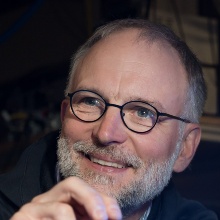The European Research Council will support the research of Prof. Tilman Pfau with an ERC Advanced Grant for his new approach to understanding fermionic matter with long-range interactions using innovative quantum gas microscopy techniques. The ERC Advanced Grants are highly-prestigious grants awarded to well-established, leading scientists with a track record of groundbreaking research achievements over the past decade.
Tilman Pfau is the director of 5th Institute of Physics at the University of Stuttgart and the joint Stuttgart/Ulm Center for Integrated Quantum Science and Technology (IQST). His outstanding research has already been awarded with a first ERC Advanced Grant in 2010. "I am happy that the work of the whole group has been rewarded with this grant and I expect exciting research results on the behavior of strongly interacting fermions that we can observe one by one." Prof. Tilman Pfau aims to gain a profound microscopic understanding of the underlying physics of strongly correlated fermionic quantum matter with interactions that range over distances that can only be resolved by new microcopy techniques.
Strongly interacting Fermi gases appear in nature from the smallest to the largest scales — from atomic nuclei to white dwarfs and neutron stars. However, they are notoriously difficult to model and understand theoretically. Prof. Pfau and his team of experts will tackle these challenging fundamental physics problems experimentally with two innovative quantum gas microscopy techniques suited for the detection of strong dipolar quantum correlations in lattices and bilayers and fermionic correlations around impurities and charges. The first technique is based on non-linear optical microscopy to study dipolar fermions on lattices and bilayers. The second technique is a newly developed and demonstrated pulsed ion microscope with unprecedented spatial and temporal resolution. The pulsed operation enables controlled studies of transport of charged polarons in a Fermi gas. This novel quantum gas microscope can resolve the dynamics from the two-body collisional time scale to the collective many-body timescale. These highly controllable atomic model systems hold promise for guiding the research on similar Fermi systems in materials science, nuclear physics and astrophysics.


